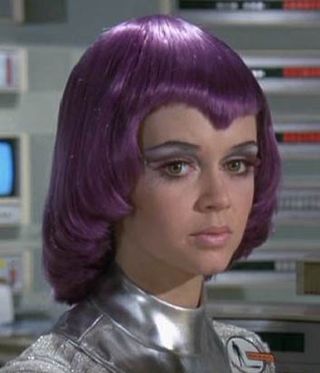I read two interesting takes on the new fall TV season. TV Writer Kay Rendl sees more vertical integration on the business side and the continued pursuit of cool on the creative side.
Think about it — what drama do you watch on network TeeVee that features uncool lead characters? Even my favorite network shows featured cool people. The Gilmore girls were cool. The politicians on the West Wing were cool, even when they were policy wonks because they would still sleep with prostitutes. And even Buffy, with her outcast-ness, slayed vampires. Willow became a cool lesbian witch. Xander married an ex-demon and lived in a weird 80s condo.
There are two ways to be an outcast: You either hide your weird qualities (Buffy), or you showcase them (Glee). It wasn't until I watched the Glee pilot that I realized what had been bothering me about the pilots, and it's that cool factor. Even when a pilot tries to make a character less cool, they invariably balance that quality out with a cool element: Mary Sue's a mousy librarian, but she's also a witch who looks GREAT with her hair down and her boobs pushed up. Cool is the safe zone for networks.
With buyers still shaken by the economy, this is the first upfront season in which it’s become impossible to ignore the troubles that riddle the television industry—financial, technological, creative. Automobile ads have dissolved. Cable is ascendant. And none of the default settings are holding: NBC—which skipped the upfronts, giving “infronts” two weeks earlier—has gone rogue, scheduling an hour of Leno every weeknight at ten, touting an “all-year” schedule.
[…]CBS’s “we’re No. 1!” sell is compelling, if in a depressing way: People love our dullest shows! They cheer their purchase of Medium, which NBC dumped. The reality pilot Undercover Boss strikes a chord with this audience of people terrified of being fired.
The after-party—at Terminal 5 instead of CBS’s old venue, Tavern on the Green—is sweaty and miserable, with chocolate fortune cookies containing the unsettlingly fascist message “Only CBS.” It occurs to me that all this branding is itself oddly dated, to viewers if not to marketers—how many television viewers are loyal to one network anymore, now that the very concept of a time slot has nearly dissolved?
The sad truth behind the hype, the booze, and the chilled shrimp fed to the advertising reps who attend these things is that 90% or more of the new fall shows will fail. Miserably. And everybody knows that…but deny it to themselves, something Jimmy Kimmel's comedy schtick at the ABC upfront presentation made perfectly clear.
"Everything you’ve heard today, everything you’re going to hear this week, is bullshit. […] Every year we lie to you, and every year you come back for more … You don’t need an upfront, you need therapy. We lied to you, and then you passed those lies along to your clients! Everyone in this room is completely full of shit.”
Everybody laughed. They should have cried.
 Last Tuesday, I had a meeting with a showrunner about filling an open writer/producer position on his new series. I learned yesterday, a week later, that he was going with somebody else. That's no big deal, it happens all the time. But here's the twist… it turns out that an hour before my meeting last week, the showrunner tweeted that he'd just made an offer to a guy I'll call "Producer X" and that he was "crossing his fingers" that the offer would be accepted. So when I had my meeting, the showrunner had already decided to go with someone else…and had announced it to the world…but not to me. He was seeing me as, at best, a back-up in the case the other guy passed…which would be fine, if he hadn't already announced publicly that he really wanted somebody else.
Last Tuesday, I had a meeting with a showrunner about filling an open writer/producer position on his new series. I learned yesterday, a week later, that he was going with somebody else. That's no big deal, it happens all the time. But here's the twist… it turns out that an hour before my meeting last week, the showrunner tweeted that he'd just made an offer to a guy I'll call "Producer X" and that he was "crossing his fingers" that the offer would be accepted. So when I had my meeting, the showrunner had already decided to go with someone else…and had announced it to the world…but not to me. He was seeing me as, at best, a back-up in the case the other guy passed…which would be fine, if he hadn't already announced publicly that he really wanted somebody else.

